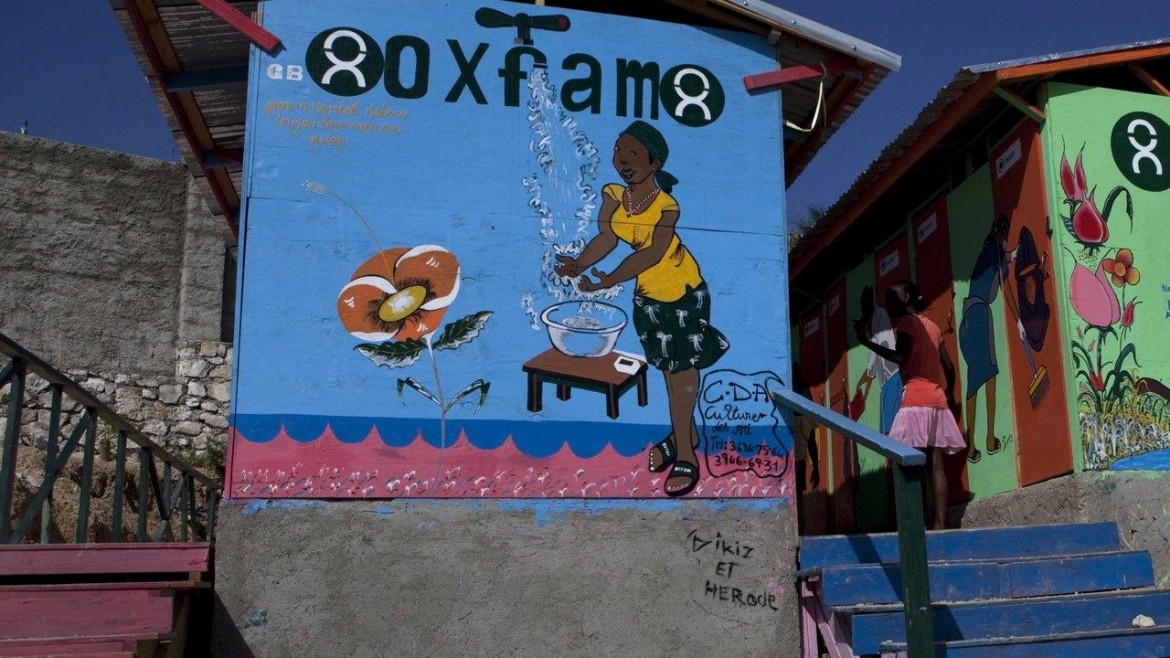Commentary
Oxfam sex scandal is a crossroads for development aid
The overt forms of exploitation through colonial presence are replaced by more subtle, but no less intrusive, methods of colonization of the symbolic realm.

Penny Mordaunt, the British Minister for International Cooperation, has called the sex scandal that hit the NGO Oxfam a “moral failure.” The story concerns events that occurred in 2010 after the earthquake in Haiti.
The allegations, denied at the time by Oxfam, concerned aid workers hiring prostitutes, perhaps even underage ones.
In the British newspapers, the scandal is spreading to other UK-based NGOs as well, and threatens to involve none other than the International Red Cross. Whatever future developments might bring, the events in Haiti are putting the world of humanitarian cooperation and aid before a problem that they cannot avoid.
It is, in short, a matter of questioning the power relations between donors and recipients, always clearly unbalanced in favor of the former. The geopolitical climate in which the movement of international cooperation for development was born, in the ‘60s of the last century, had structured these relationships in a decidedly asymmetrical way from the beginning.
It was US President Harry Truman who gave the policies of international cooperation for development their start, explicitly stating that the rest of the world should follow the US model if they wanted to finally be able to reach the standard of living of the average American. This was the ideology of the American Dream—but today we know that, in concrete terms, it results in a real nightmare.
Even after the fall of the Iron Curtain, international cooperation for development was used as an instrument of the Cold War, a carrot offered for the newly independent countries. But what really made the difference, both in an Eastern and Western context, beyond the development-focused rhetoric, was the powerful stick of the dictatorships that gradually replaced various attempts at democracy. One example is illustrative: Congo’s Patrice Lumumba, brutally killed for saying that the natural resources of his country belonged to the Congolese. After 60 years, that civil war is still causing millions of victims, and the same interests as always are at play.
This is how, as Frantz Fanon described with great clarity some time ago, hiding in the details of “development” are impulses toward the very antithesis of it.
The idea that there is one global leadership, to which the rest of the world must de facto bow down to, implies, of course, a contempt, more or less manifest, for the cultures that, in this view, are “underdeveloped” on account of their history.
In this way, the overt forms of exploitation through colonial presence are replaced by more subtle, but no less intrusive, methods of colonization of the symbolic realm. Kwame Nkrumah, the Pan-Africanist leader of independent Ghana, showed in no uncertain terms the need to “decolonize the symbols” of the African peoples.
Fanon dedicated his books The Wretched of the Earth and Black Skin White Masks to these topics. Today we are seeing clearly how these power dynamics are also heavily at play in the field of the reception of refugees and migrants, turning into racism and xenophobia, historical revisionism and sovereignism.
The degeneration of the humanitarian ideal, however, is much more widespread, if we think of the fact that international NGOs are now under fire even from so-called democratic governments—from being banned from rescuing migrants at sea to their roles being taken over by the military, who are constitutionally alien to the principles of neutrality and independence. If one were to recall the scandals related to military humanitarian interventions, the list would end up featuring all of them.
Precisely because of this state of affairs, starting from the ‘80s, NGOs began to introduce more stringent codes of conduct, both regarding the criteria for recruitment as well as internal supervision. Another significant fact, visible also in the case of Oxfam itself, is the presence of women in the top leadership positions of NGOs, which has become a structural feature aimed at introducing powerful correctives to gender dynamics.
Of course, there is much more work still to be done, but the ability of NGOs to police their scandals and adopt tools for the prevention of such phenomena should be read as an effort to overcome that still-existing, darkly “developmentalist” undercurrent that represents the worst subversion of the ideals enshrined in the Charter of Human Rights.
Originally published at https://ilmanifesto.it/lo-scandalo-oxfam-e-il-nodo-ineludibile-della-degenerazione-dellumanitario/ on 2018-02-13
